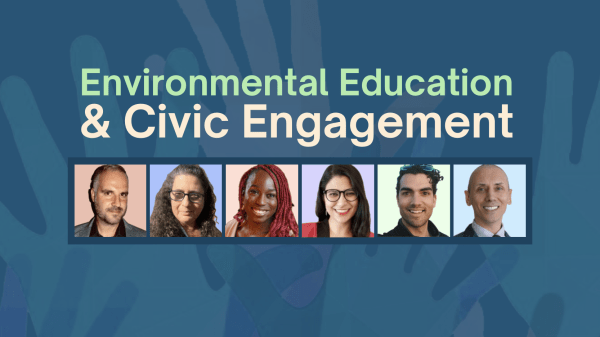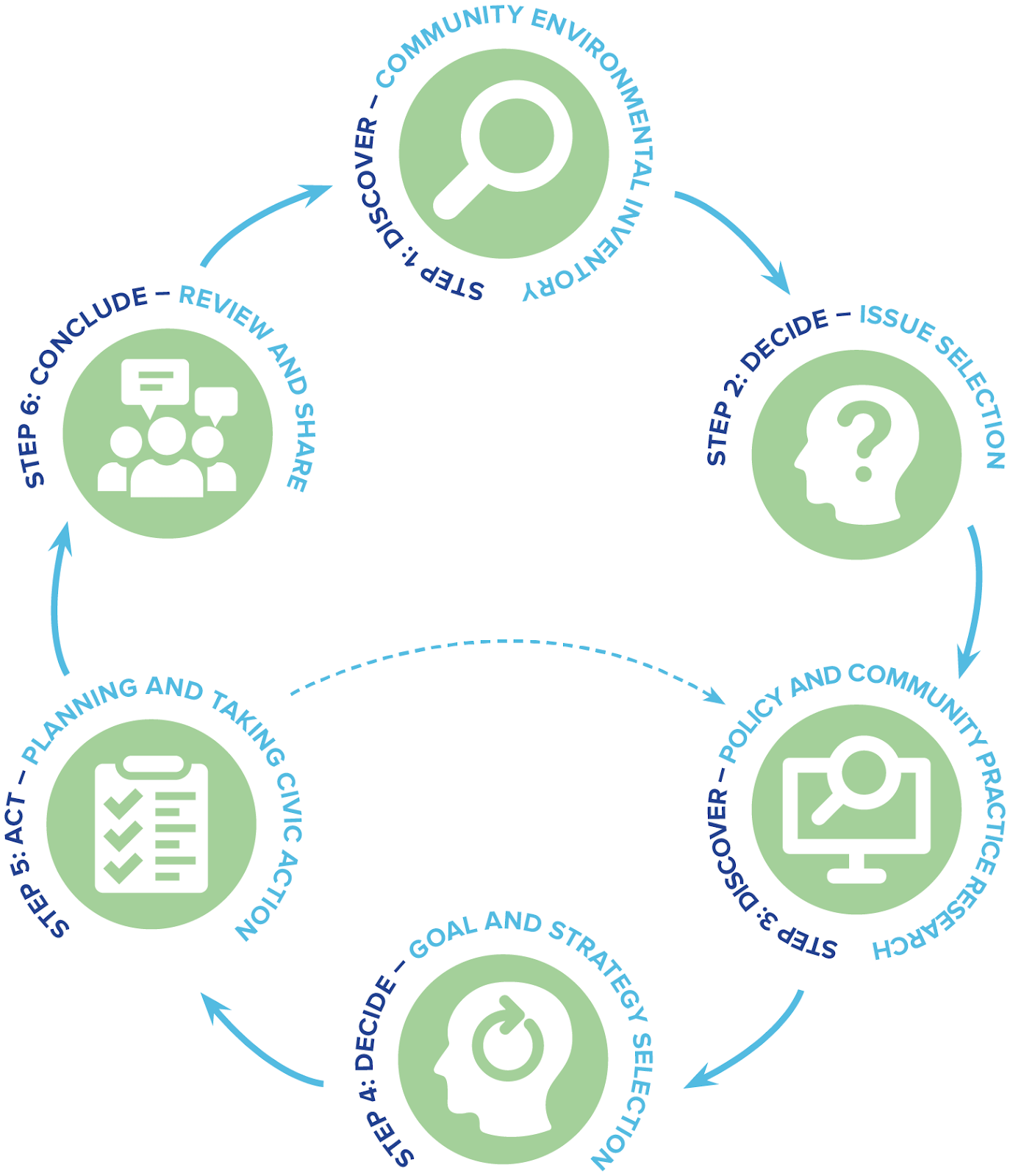Unlocking Environmental Action Civics

Welcome to our EE and Civic Engagement mini-blog series! This series highlights key insights from a panel discussion hosted by Cornell University and the NAAEE ee360+ program in May 2024. Each post will feature one panelist, sharing their segment of the webinar along with a thoughtful essay that expands on their ideas.
This essay is written by Taylor Ruffin, Program Manager at Earth Force, where he applies the Environmental Action Civics model to empower students to address local environmental issues through civic engagement. His efforts include developing and implementing projects that engage underrepresented communities in environmental stewardship and policy-making in the Denver Metro Area.
Connecting others to the wonder of the natural world has always been a focus of environmental education. At the intersection of natural and human systems, we have long seen the challenges of developing sustainable practices and policies. This is where civic engagement is critical to developing a holistic understanding of how we manage our natural resources and act as stewards for the environment. At Earth Force we emphasize facilitating a process that provides an opportunity for young folks and their adult allies to develop strategies to address environmental issues. Through this process they develop skills and gain experiences to become lifelong environmental citizens. By focusing on local issues, shared decision making and collaboration with the community, youth can affect systemic change.
Civic engagement and environmental education intersect at many points. At Earth Force we define civic engagement as any individual or group attempting to improve life in their community by advocating directly to those in power for changes they want to see. In our process, we start by focusing on the local community and defining the parameters to investigate strengths and weaknesses and identify place-based issues rooted in everyday lived experiences. This investigation creates connectivity and enthusiasm that helps drive the shared decision making between youth and adults. Collective buy in leads to collective action.
Engaging in local community issues and sharing decision making creates more opportunity to build the skills needed to become an environmental citizen. Going beyond the one-off program and focusing on a process that truly addresses the community practice or policy we seek to change. This includes action taking through the development of strategies to address environmental issues. Youth connecting with resources professionals, individuals in power and impacted community members helps construct a holistic picture of the issue and inform possible solutions. Gathering information and perspectives sets the stage for creating a strategy to action that is sustainable and strives for systemic change.
Opportunities for civic engagement can be as small as developing an ask for change. For example, youth identify an environmental issue, research a strategy that addresses that issue and connect with a person in power to request that strategy be implemented. Sometimes those efforts see little results, or those in power decline to implement the desired strategy for change. This provides a lesson in adaptation and resilience, key experiences we need to strive for systems change, as well as an opportunity to reflect on the process and celebrate hard work, regardless of outcome. In a way, civic engagement is a practice that can only be exercised through direct experience. The more we practice the more we improve our ability to create the environmental changes we wish to see.


